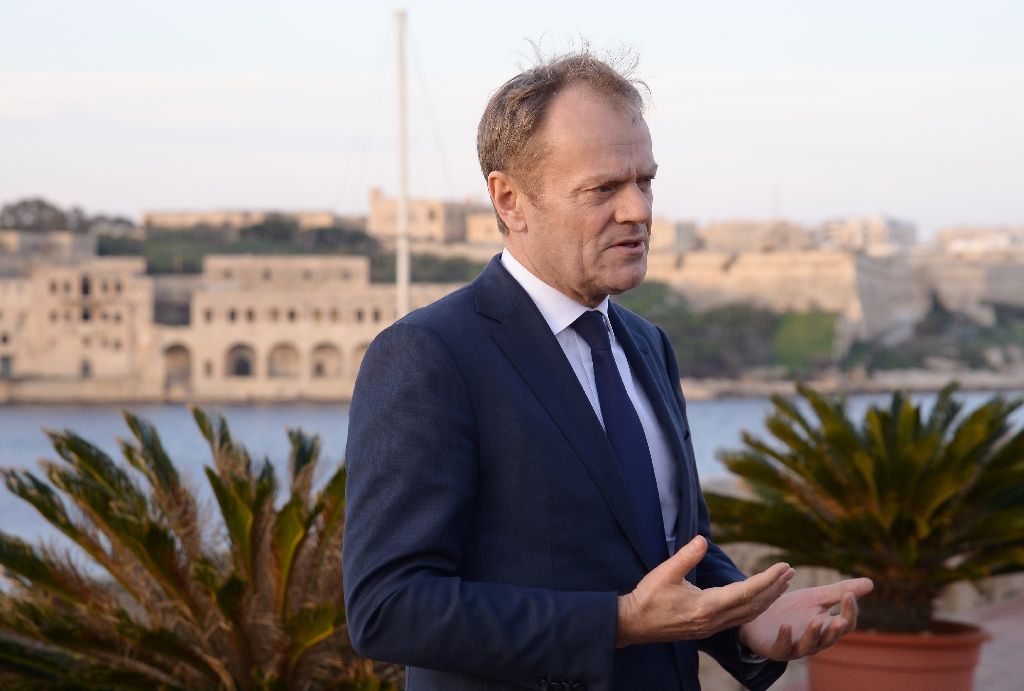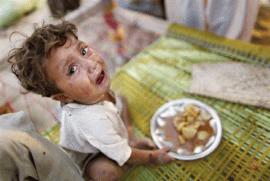
European Union leaders will try to rally together to revive the beleaguered bloc at a special summit in Malta on Friday in the face of "threats" from migration, Brexit and Donald Trump.
It is the latest in a series of crisis meetings since Britain voted to leave the EU last June, but fears about the new US president have strengthened the sense that the bloc is now at a decisive moment in its history.
The first part of the meeting, which all 28 leaders will attend, will focus on the migration crisis amid warnings of a new surge in people making the dangerous sea crossing from Libya.
"Our main goal for the Malta summit is to stem the flow of irregular migration from Libya to Europe. This is the only way to stop people dying in the deserts and at sea," EU President Donald Tusk said in Valletta on Thursday.
Yemenis pray, protest in NY against Trump travel ban
British premier Theresa May will miss the second part when the other 27 discuss the way ahead after Brexit, including a flagship summit in Rome in March to mark the EU's 60th anniversary.
With doubts growing over the Trump administration's commitment to the transatlantic alliance with Europe, the leaders will also discuss "international issues" facing the union.
'Highly unpredictable'
Tusk, who will chair the summit, warned this week that Trump was a "threat" to the EU along with Russian aggression, an increasingly assertive China and domestic populism.
In a letter to EU leaders, Tusk said those factors "as well as worrying declarations by the new American administration all make our future highly unpredictable."
But Tusk also echoed what many EU leaders have said - that Trump is a chance for a Europe to finally unify after Brexit and the eurozone crisis, and perhaps even take Washington's place in global politics and trade.
Uber chief quits Trump advisory group after uproar
Unity has, however, often eluded the EU on the migration crisis, which has seen more than one million people flee war, poverty and oppression in Syria, the Middle East and North Africa.
The route from Libya to Italy has become the most pressing problem, after the EU cut sea crossings from Turkey to Greece by 98 per cent thanks to a deal with Ankara.
Most of the 181,000 people who came via Libya in 2016 were illegal economic migrants, unlike the asylum seekers arriving in Greece from Syria, the EU says.
'More and more are dying'
The leaders will agree steps to stop migrants taking boats in the first place, including help for the Libyan coastguard and border forces, according to a copy of a summit declaration seen by AFP.
With rights groups warning about terrible conditions caused by people smugglers, other steps include helping Libyan communities to host migrants and working with the UN refugee agency and International Organisation for Migration, it says.
But talk of a Turkey-style deal with Libya is impossible given the chaos following the 2011 toppling of Moamer Kadhafi, while plans for processing camps for migrants outside EU territory are not yet "mature", an EU official said.
Iranian turned away by Trump travel ban back in US
"This is a very difficult, complicated route but there is no alternative to trying. More and more people are dying, so the status quo is not sustainable," the official said.
The IOM urged EU leaders to take "decisive action".
The EU leaders will discuss international issues over lunch, where May could be asked to "debrief" her colleagues about her meeting with Trump last week where they talked about a post-Brexit US-Britain trade deal.
The other 27 will then discuss the roadmap for the EU's post-Brexit future that they will unveil at the March 27 summit in Italy celebrating six decades since the Treaty of Rome which founded the EU.







1732946669-0/Untitled-design-(10)1732946669-0-270x192.webp)









COMMENTS
Comments are moderated and generally will be posted if they are on-topic and not abusive.
For more information, please see our Comments FAQ